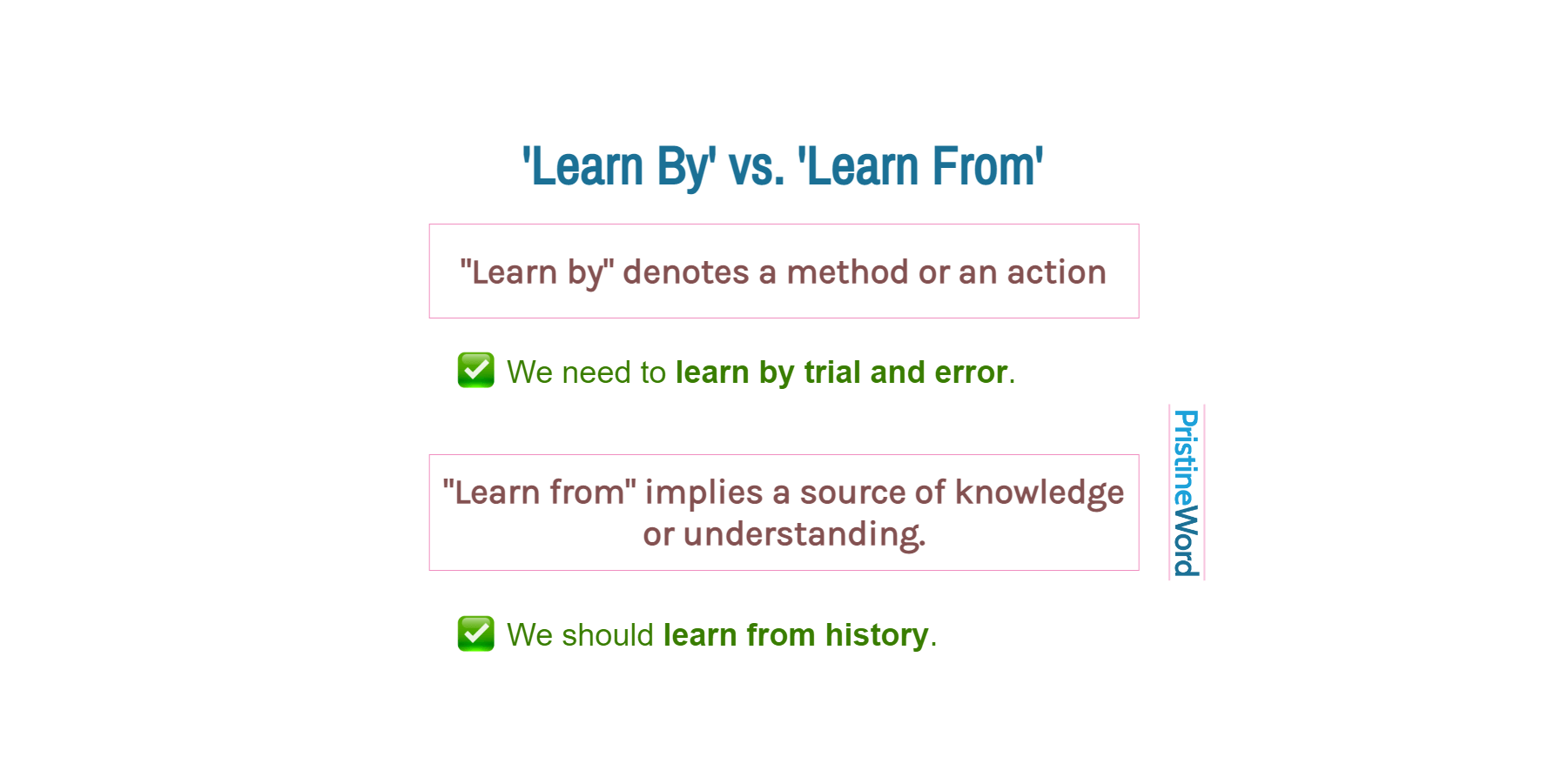"Learn by" denotes a method, while "learn from" denotes a source of knowledge or understanding.
"Learn by" and "learn from" may seem similar but are used in different contexts. "Learn by" implies acquiring knowledge or skills through a specific method or action.
We need to learn by trial and error.
We need to learn from trial and error.
"Learn from" is about acquiring knowledge or understanding from a source, whether that source is a person, a mistake, an experience, or any other entity.
Olivia learned from the best. (Note that "the best" is not a method.)
We can learn from our mistakes. ("Our mistakes" is not a method.)
Always remember: "learn by" denotes a method, while "learn from" denotes a source of knowledge or understanding. Keep this in mind, and you'll be on the path to more precise communication!
We frequently use "learn by" to say:
- Learn by practicing, studying, or doing something: This means the person understands or retains information better when they perform the task or action.
- Learn by repetition: Here, the individual needs to repeat information multiple times to grasp it fully.
When talking about subjects, teachers, or any other source, "learn from" is almost always more appropriate.
We should learn from history.
Our team learned from the feedback provided by customers.
One of the most common mistakes is using "learn by" when "learn from" is more appropriate and vice versa. For instance, saying, "I learn by my mistakes" (incorrect) instead of "I learn from my mistakes." (correct).

